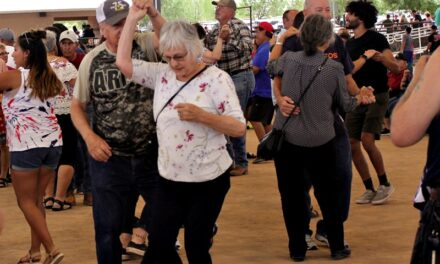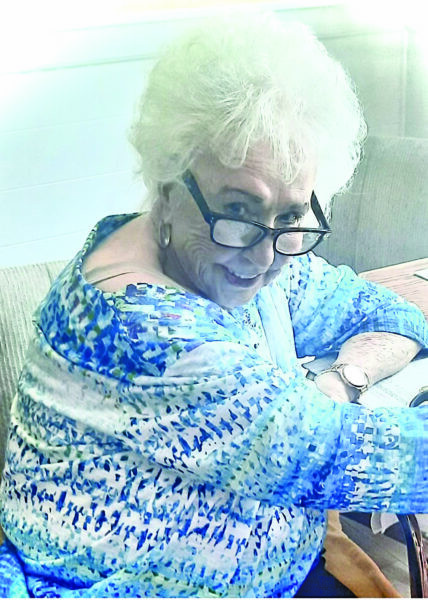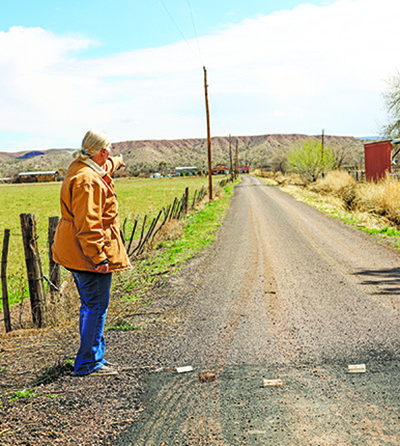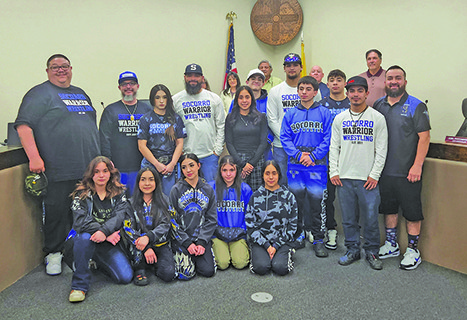Diné composer, performer and installation artist Raven Chacon has won the Pulitzer Prize for Music for his composition “Voiceless Mass.” He is the first Native composer to win a Pulitzer.
“This was a response to buildings like the church (and other institutions like it), that suppresses voices,” Chacon said in a telephone interview from Red Hook, New York. “The music is very slow moving and uses church organ, percussion, wind instruments, strings and electronic tones.
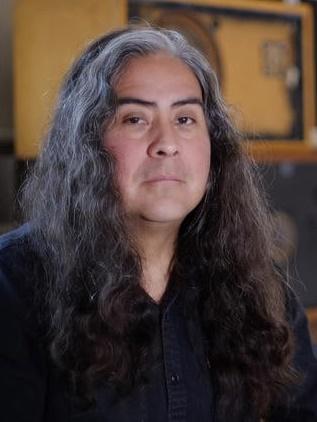
Composer Raven Chacon is seen in his Downtown Albuquerque home in February. The composer/musician/artist won the Pulitzer Prize in Music for his composition “Voiceless Mass.” (Adolphe Pierre-Louis/Journal)
“It’s all instrumental,” he continued. “I guess that makes the irony in the title.”
The Albuquerque-based artist’s work is currently on display at New York’s Whitney Biennial through Sept. 5.
Chacon had no idea he was the recipient of a Pulitzer until he began receiving texts from friends who saw the announcement.
“I can’t remember when I filled (the application) out,” he said.
The piece had been commissioned by the group Present Music in Milwaukee.
“They’re like the Chatter (chamber music group) of Milwaukee,” Chacon said.
“I’m speechless,” he added. “I’m very honored that my chamber art has been recognized.”
Chacon’s 2020 opera “Sweet Land,” co-composed with Du Yun, was performed outdoors at the Los Angeles State Historic Park. The piece earned critical praise for its revisionist telling of American history using different perspectives simultaneously. The opera was awarded best new opera by the Music Critics Association of North America for 2021.
Chacon has been mentoring hundreds of Native high school composers in the writing of string quartets through the Native American Composer Apprenticeship Project since 2004.
For his second stop at the Whitney, Chacon brought works developed from 20 years of sonic research. He created 13 graphic scores dedicated to Indigenous women composers, including artists such as Joy Harjo (Muscogee Creek Nation), the former U.S. poet laureate; and First Nations singer/songwriter Buffy Sainte-Marie. He’s working on a book about the project to be released this summer.
Born in Fort Defiance, Arizona, Chacon grew up in Albuquerque, where he earned his bachelor’s in music at the University of New Mexico. He received his master’s degree from the California Institute of the Arts. Today he teaches at the Institute of American Indian Arts in Santa Fe. He has also taught at UNM, Bard College, Colorado College and the California College of the Arts in San Francisco.
Chacon’s father was from Mora, while his mother came from Chinle, Arizona.
He took piano lessons at a young age. Although he didn’t stick with the keyboard, learning to read music would prove critical.
His grandfather sang traditional Navajo songs. Chacon veered more toward heavy metal and experimental music, navigating the New Mexico band scene.
He describes his solo sets as “noise.”
After the Biennial, he has been invited to a fall residency at Philadelphia’s Pew Center for Arts and Heritage.
The Associated Press contributed to this report.


